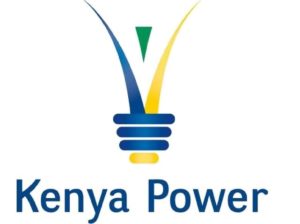Kenya Power and Lighting Company, which is more commonly known as Kenya Power or KPLC will begin selling fast speed internet to businesses in Kenya. The move is being seen as a way for the company to benefit from the increase usage of data in Kenya and also diversify its revenue streams.

The Kenya Power and Lighting Company (KPLC) has before now, been leasing out the Fibre optic cables attached to its transmission lines to Internet Service Providers (ISPs).
The electricity distributor will be announcing an option which will make it possible for its corporate consumers to purchase electricity as well as internet as a single bundle package in the next couple of weeks after it would have conducted a number of pilot tests with the larger electricity users.
This means that Kenya Power and Lighting Company (KPLC) will be in direct competition with the Wananchi Group (Zuku), telecommunications giant; Safaricom, and Jamii Telecoms which currently have 85.1 percent of the fixed data market in Kenya.
Kenya Power and Lighting Company (KPLC) made it known via a statement that, “We will provide our corporate sector customers with a bundled service of electricity and internet.”
It added that, “Kenya Power will leverage on our vast network to tap into the market…we will offer the corporates the option of using our internet for their primary use or redundancy.”
Read Also: IPPs Want Electricity Auctions
The Kenya Power and Lighting Company (KPLC) believes that it will be able to provide packages that are affordable so as to gain market share. It could also possibly lead to a pricing competition within the telecommunications sector as more and more operators continue to see data as the new driving force for growth.
In the last five (5) years telecommunications company; Safaricom, has spent billions of Kenyan Shillings on the building of its fixed data network so as to connect homes in Kenya to the internet at a period when the demand for streaming services like Netflix and Amazon Prime Video, continues to increase.
It has so far, been able to connect thousands of homes to its fixed data network through poles and of course Fibre. This resulted in it becoming the market leader and overtaking other players in the sector; Zulu and Jamii Telecoms.
Kenya Power and Lighting Company (KPLC) aims to sell internet directly to homes in the next three (3) to ten (10) years, with a target on rural areas.
It is expected that the moves will significantly impact Internet Service Providers (ISPs) who have so far depended on Kenya Power and Lighting Company (KPLC)’s network to sell their data. Kenya Power and Lighting Company (KPLC) will now have an important advantage in the competition for market share in rural areas in Kenya as it will use its transmission networks to connects its Fibre networks to homes.

Internet Service Providers (ISPs) use the wide power transmission network of the Kenya Power and Lighting Company (KPLC) to gain access to the approximately eight (8) million electricity users in the country. This significantly reduces the cost setting up the infrastructural support which is expensive and involves the digging of the trenches used to lay the terrestrial cables needed.
The Kenya Power and Lighting Company (KPLC) signed a twenty (20) year lease agreement in 2010. The lease agreement was worth 421 million Kenyan Shillings with telecommunications company; Safaricom for the use of a pair of Fibre cables.
The electricity distributor also secured deals with Jamii Telecoms and Wananchi Group. Both telecommunications companies signed five (5) year leases that were worth a total of 403 million Kenyan Shillings.
Read Also: KPLC Receives 7 Billion Kenyan Shilling Subsidy To Reduce Bills By 15 Percent
Companies operating in the telecommunications industry believe that Fibre optic cables are a means to cut down the usual costs associated with satellite connections and also avoid copper wire connections which are susceptible to vandalism.
Kenya Power and Lighting Company (KPLC) had initially viewed the Fibre optic cables as a way to improve on its ability to monitor the grid. The by product was that Internet Service Providers (ISPs) preferred the Fibre optic network as vandals find it harder to steal because it stays on top of live cables for electricity.
In the six months which ended in December of 2021 the Kenya Power and Lighting Company (KPLC) received a total of 290 million Kenyan Shillings as payment for the leasing of its Fibre optic cables. This was significantly lower than the total of 315 million Kenyan Shillings it received during a similar period in 2020.

The wide network of Fibre optic cables which are attached to Kenya Power and Lighting Company (KPLC)’s transmission lines means that it will now have the lowest cost of entry into the fixed internet market when compared to the other players in the market.
In December of 2021 the electricity company; Kenya Power and Lighting Company (KPLC) had a total of 8.59 million customers. This including a total of 404,800 small business as well as major industrial customers.
Information revealed by the Communications Authority (CA) made it known that telecommunications giant; Safaricom currently controls thirty seven (37) percent of the entire market or an equivalent of 284,420 home and office internet connections.
Read Also: Alphabet Closes Its Loon Internet Balloon Business
It is followed closely by Zuku which is owned Wananchi Group and controls 29.4 percent of the market or an equivalent of 224,124 internet connections.
Jamii Telecoms which is the third largest Internet Service Provider (ISP) in the Kenyan market with a market share of 18.9 percent or 145,337 internet connections.
Poa Internet, currently controls a 9.1 percent market share or 69,906 internet connections.
The Communications Authority (CA) believes that the fixed internet market in Kenya is still to a large extent, untapped. This provides telecommunications companies and the Kenya Power and Lighting Company (KPLC) with the opportunity to increase their revenues.

Contemporary Media Solutions. www.cms.com.ng
With the still ongoing Coronavirus pandemic, the demand for fixed internet connections have continued to increase as more and more people are now going to classes from home and working from home.
According to the Kenya Power and Lighting Company (KPLC), “Looking at the business landscape, the opportunities are immense and available for everyone.”
The Kenya Power and Lighting Company (KPLC) expects that the revenue generated from its selling of data to corporate customers will help it diversify its income and also effectively battle the challenges it has been facing in its electricity business.
Read Also: KPLC Can Charge Electric Cars – CEO
Kenya Power and Lighting Company (KPLC) which is the only electricity distributor in Kenya, has been combating numerous problems including frequent power outages due to its older infrastructure, cases of vandalism, and an increase in its operation costs, alongside directives from the Kenyan government stating that it should cut down its electricity tariffs for consumers.
In the six (6) months leading up to December 2021 the Kenya Power and Lighting Company (KPLC) released a net profit of 3.8 billion Kenyan Shillings. This is significantly higher than the 138 million Kenyan Shillings net profit it hit during a similar period in 2020.
How informative was this particular article? Are there any other news topics, categories, or How To topics, that you would like us to write on? Feel free to reach out to Nexbit KE in the comment section.


